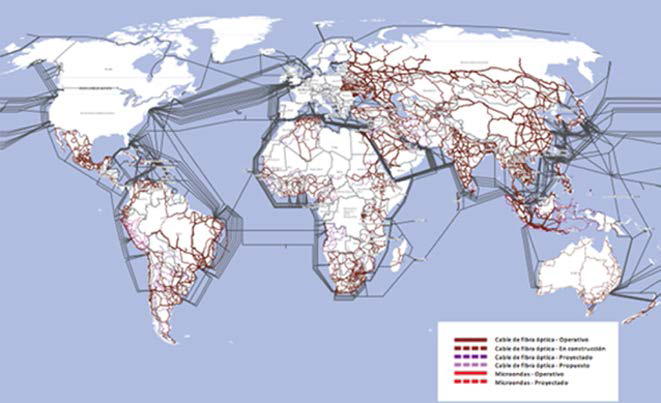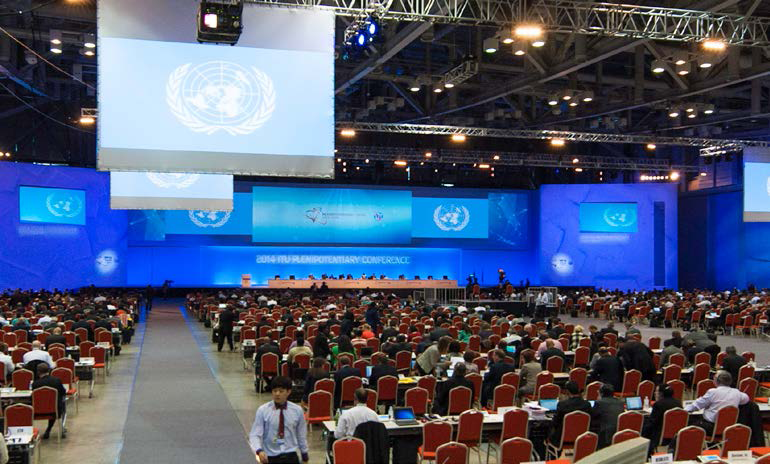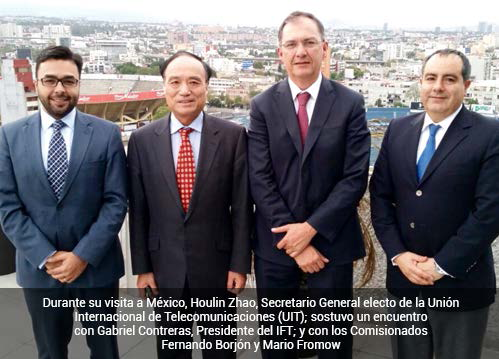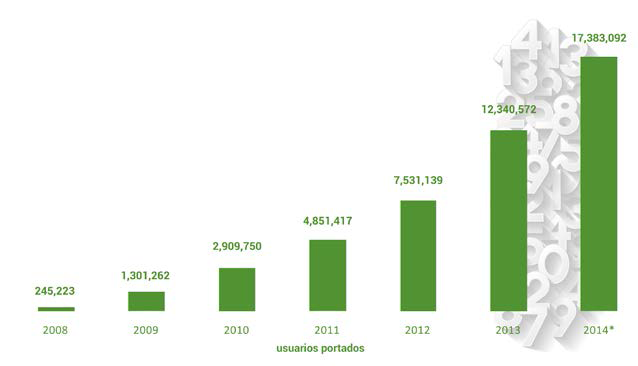Es una prueba para servicios
Alcances de la LFTR en materia de igualdad de género

La recién publicada Ley Federal de Telecomunicaciones y Radiodifusión (LFTyR), tuvo el potencial de convertirse en un instrumento integral, transversal y coordinado con los instrumentos jurídicos existentes nacionales e internacionales que promueven los derechos humanos de las mujeres1. Si bien recupera los principios de igualdad de género y no discriminación e incluye ordenamientos en esta materia, está lejos de promover de manera plena e integral el derecho humano de las mujeres y las niñas a comunicar y a la información.
Sin embargo, los artículos aprobados sientan la base para avanzar en el cumplimiento de la agenda de género y comunicación en nuestro país. Revisaremos a continuación los avances y pendientes:
En mayo de 2014, presenté al Senado de la República la propuesta para transversalizar la iniciativa de Ley enviada por el Ejecutivo Federal con perspectiva de género. El objetivo era coadyuvar en el cumplimiento de los compromisos que el Estado mexicano asumió desde hace 19 años ante el sistema de la Organización de las Naciones Unidas (ONU) y la comunidad internacional de garantizar el impulso de políticas y leyes de comunicación con dicho enfoque.
La iniciativa partía del supuesto de que la perspectiva de género requería ser transversalizada en la reforma de telecomunicaciones y radiodifusión, pues todas las dimensiones que estaban siendo discutidas en torno a esta legislación afectaban a las mujeres y las niñas. Asimismo, de que la transversalización de la perspectiva de género, garantizaría la solución a los problemas generados por la desigualdad de género en materia de comunicación e información y contribuiría a la realización plena de los derechos humanos de las mujeres y las niñas.
Con estos antecedentes, la propuesta presentada al Senado consistió en la elaboración de un documento que proponía modificaciones a la Iniciativa presentada por el Ejecutivo Federal, a fin de que promoviera plenamente el derecho humano de las mujeres comunicar y a la información, y la igualdad de género, así como que contribuyera al cumplimiento de los artículos primero, cuarto, sexto y séptimo constitucionales y otros ordenamientos legales.
Las propuestas de modificaciones referían a los capítulos: Disposiciones generales, Instituto Federal de Telecomunicaciones (IFT), Concesiones, Neutralidad de la red, Cobertura universal, Contenidos, Producción nacional y Producción nacional independiente, Derechos de las audiencias, Sanciones en materia de telecomunicaciones, radiodifusión y de contenidos audiovisuales y Sistema Público de Radiodifusión en México.
Se trataba de modificaciones a 35 artículos, dirigidas a impulsar, entre otras acciones, el servicio público con perspectiva de género; fomentar la participación paritaria2 de las mujeres en todos los niveles del órgano regulador; desarrollar el sistema de concesión con perspectiva de género; garantizar el acceso y participación paritaria de las mujeres a las empresas de los sectores de telecomunicaciones y radiodifusión y promover el respeto a sus derechos laborales; impulsar e incrementar la participación de las mujeres en la producción de contenidos audiovisuales; garantizar el acceso universal a las nuevas tecnologías con perspectiva de género; promover la producción de contenidos audiovisuales con perspectiva de género; empujar un “Programa Nacional de educación para los medios y las tecnologías de información con perspectiva de género” que involucre a la Secretaría de Educación Pública; impulsar defensorías de las audiencias con perspectiva de género; crear mecanismos que garanticen los derechos de las mujeres como usuarias de los servicios de las telecomunicaciones; impulsar la autorregulación con perspectiva de género; garantizar la propiedad intelectual con perspectiva de género y el derecho de réplica con perspectiva de género; instituir el “Consejo del derecho humano de las mujeres y las niñas a comunicar y a la información“; y crear el “Observatorio del derecho humano de las mujeres y las niñas a comunicar y a la información”.
Nuestra propuesta logró impactar en nueve artículos de la nueva legislación, al promover los principios de igualdad de género y no discriminación en los siguientes renglones: servicio público para las telecomunicaciones y la radiodifusión; servicio profesional del IFT; concesiones de uso social, incluyendo las comunitarias e indígenas; derechos de los usuarios de telecomunicaciones; contenidos audiovisuales y de la publicidad, y derechos de las audiencias.
Quedan pendientes: los avances en materia de acceso paritario de las mujeres a las empresas de los sectores de las telecomunicaciones y la radiodifusión y el respeto a sus derechos laborales; el impulso de la participación de las mujeres en la producción de contenidos audiovisuales; el acceso universal a las nuevas tecnologías con perspectiva de género; la promoción de un “Programa Nacional de educación para los medios y las tecnologías de información con perspectiva de género”; y en impulsar la autorregulación, la propiedad intelectual y el derecho de réplica. Confió en que el IFT asuma como propia la responsabilidad de crear el “Consejo del derecho humano de las mujeres y las niñas a comunicar y a la información“, que tenga como tarea la vigilancia de los sistemas de radiodifusión y telecomunicaciones en esta materia y, en este marco, el “Observatorio del derecho humano de las mujeres y las niñas a comunicar y a la información”, con el objetivo de contar con información sistemática de los distintos renglones de la agenda de género y comunicación en México.
Temas relacionados
México, ante el reto de la digitalización

El mercado mundial de las Telecomunicaciones (redes y servicios) está inmerso en un proceso de transición, que desemboca en el paradigma de los sistemas analógicos a los sistemas digitales. Dicha evolución requiere que se cuente con las normas reglamentarias claras para la debida explotación del espectro radioeléctrico y la sana competencia, promoviendo que los usuarios se vean realmente beneficiados con tarifas accesibles y mejora de los servicios ofertados. Las tendencias en la reforma de telecomunicaciones implican una parte clave del diálogo entre quienes ofrecen los servicios de este sector y los responsables políticos nacionales quienes tienen la obligación de ser acordes a la reglamentación internacional, teniendo como meta primordial el crecimiento económico y la aperturadel mercado global, al tiempo que garantice que todos en la sociedad se beneficien de forma segura de las oportunidades digitales.
En la actualidad, contar con acceso a servicios en línea es fundamental para encontrar trabajo, recibir un salario, pagar facturas e impuestos, formarse y tomar decisiones personales y comerciales. Los gobiernos de todo el mundo trabajan para proporcionar acceso a la tecnología de la información y las comunicaciones (TIC) a todas las personas. México no debe quedar rezagado en este sentido, por lo que las reformas deben servir para promover la innovación y la inversión, así como proteger los derechos de los usuarios, al implementar la elaboración de instrumentos reglamentarios eficaces y novedosos. La reglamentación de cuarta generación es esencial para dar paso a las comunicaciones digitales, mismas que deben ser consensuadas por verdaderos especialistas en la materia para que la asesoría a quienes promueven las leyes se apegue a las características técnicas que este sector requiere.Con la entrada en vigor el primer día de enero de 2016 de la digitalización de la radiodifusión, se debe garantizar también una mejor calidad en el contenido programático y determinar el beneficio que la interactividad de la población que accede a este servicio puede obtener.
En este sentido es importante que las empresas se vinculen a través de cuerpos colegiados para llevar a cabo proyectos de colaboración, incluyendo a investigadores, estudiantes y académicos de instituciones de educación superior (IES). Se requiere un trabajo interdisciplinario Gobierno-Industria-Instituciones Educativas que permita desarrollar proyectos, formación de cuadros técnicos y de prestación de servicios, así como la implementación y evaluación constante en el desarrollo de este sector.
La globalización está presente por lo que se requiere la implementación de verdaderas políticas de desarrollo acordes a las necesidades específicas de la población mexicana sin dejar de tener presente lo que sucede en el resto del mundo. IFT
Temas relacionados
Definen futuro de las tecnologías. México, presente en la Conferencia de Plenipotenciarios de la UIT

La Conferencia de Plenipotenciarios constituye el acontecimiento más importante en el que los Estados Miembros de la Unión Internacional de Telecomunicaciones (UIT) deciden el papel que desempeñará ese organismo en el futuro y, por ende, determinan su capacidad para influir y repercutir en el desarrollo de las Tecnologías de la Información y la Comunicación (TIC) en el mundo.
México contribuye activamente en la UIT desde 1907, y participa de manera continua en el Consejo de la Unión desde 1953, destacando el hecho de que se han asumido cargos de responsabilidad en el mismo, incluyendo el de Presidente y Vicepresidente del Consejo, así como se han designado responsables en diversos grupos de trabajo para encausar las labores de la UIT.
La Conferencia de Plenipotenciarios se celebra cada cuatro años; la anterior se llevó a cabo en Guadalajara, Jalisco, en 2010 (PP-10). Este año, la Conferencia de Plenipotenciarios (PP-14) se realizó en Busán, República de Corea, del 18 de octubre al viernes 7 de noviembre y tuvo un récord de 2,505 delegados de 171 países.
Dignatarios presentes incluyeron en la PP-14 a la Presidenta de la República de Corea, Park Geun-hye; al presidente de Ruanda, Paul Kagame; a 76 ministros de gobierno; a 36 viceministros, y a 56 embajadores, así como a más de 3,000 delegados y casi 600 medios de comunicación locales e internacionales.
Dicha Conferencia tuvo como objetivos: mantener y ampliar la cooperación internacional entre sus Estados Miembros para el mejoramiento y el empleo racional de toda clase de telecomunicaciones; alentar y mejorar la participación de entidades y organizaciones en las actividades de la Unión; favorecer la cooperación y la asociación entre ellas y los Estados Miembros para la consecución de los fines de la UIT; promover y proporcionar asistencia técnica a los países en desarrollo en el campo de las telecomunicaciones, y alentar la movilización de los recursos materiales, humanos y financieros necesarios para dicha asistencia, así como el acceso a la información.
Asimismo, impulsó el desarrollo de los medios técnicos y su eficaz explotación, a fin de aumentar el rendimiento de los servicios de telecomunicación, acrecentar su empleo y generalizar en lo posible su utilización por el público; promovió la extensión de los beneficios de las nuevas tecnologías de telecomunicaciones a todos los habitantes del planeta, así como la utilización de los servicios de telecomunicaciones, con el fin de facilitar las relaciones pacíficas.

La Conferencia de Plenipotenciarios (PP-14) armonizó los esfuerzos de los Estados Miembros para favorecer una cooperación y una asociación fructíferas y constructivas entre los Estados Miembros y los Miembros de los Sectores para la consecución de estos objetivos, y sirvió de marco para iniciar los trabajos para conmemorar el 150 Aniversario de la UIT, lo que se realizaría el 17 de mayo de 2015, en el marco del Día Mundial de las Telecomunicaciones y de la Sociedad de la Información.
Durante la primera semana de la Conferencia de Plenipotenciarios se dedicó tiempo para que los delegados de alto nivel de los Estados Miembros de la UIT, en su mayoría ministros de Telecomunicaciones, expresaran ante la Plenaria de la Conferencia sus declaraciones de política relacionadas con las funciones, misiones y objetivos en telecomunicaciones para los años siguientes.
Previo a la declaración política de la delegación de México, el presidente de la Conferencia, el coreano Min Won-ki, hizo un reconocimiento a la labor del Comisionado del IFT, Fernando Borjón, como presidente de la Conferencia de Plenipotenciarios en 2010, realizada en Guadalajara, Jalisco.
En su declaración política, el jefe de delegación mexicana, Jorge Juraidini, representante del Secretario de Comunicaciontes y Transportes (SCT), destacó la reforma estructural de telecomunicaciones y anunció el incremento de la contribución de México a la UIT de una a tres unidades (cada unidad tiene un valor de 318 mil francos suizos). La contribución de México llegará a 954 mil francos suizos, lo cual representa el compromiso de México en las actividades de la UIT.
Por otro lado, el Instituto apoyó y promovió la candidatura de México al Consejo de la UIT mediante el contacto directo con otros países en coordinación con la SCT y la Secretaria de Relaciones Exteriores (SRE). México fue electo nuevamente como miembro del Consejo por 149 de 168 votos posibles, ocupando, junto con Argentina, el segundo lugar en votos en la Región América.
El IFT participó de forma activa en la Conferencia, al cumplir con los objetivos de representación, y se generaron vías de cooperación o áreas de influencia conjunta en asuntos globales con los Estados Miembros de la UIT. Estas participaciones posicionaron al Instituto como un regulador independiente y observándose un gran interés por México debido a su potencial de crecimiento.
El Instituto participó en las actividades que condujo la SCT para la elaboración de la postura de México a nivel regional e internacional. En virtud de las diversas temáticas discutidas en el marco de la Conferencia y las atribuciones del Instituto señaladas en la Ley, entre los que destacan los siguientes temas: Podemos concluir que la participación del IFT en la Conferencia de Plenipotenciarios representó un escenario ideal y una oportunidad excepcional para cumplir con los objetivos del Programa Anual de Trabajo 2014 del Instituto (PAT-14) y contribuir en la toma de decisiones de la UIT, para favorecer las posturas sobre políticas públicas orientadas al desarrollo eficiente de las telecomunicaciones que permitan posicionar a México en un ámbito que le genere mayores beneficios sociales y económicos.
Las actas finales de la Conferencia se encuentran disponibles en la URL: http://www.itu.int/en/plenipotentiary/2014/Documents/final-acts/pp14-final-acts-es.pdf
Entrevista UIT al Comisionado Fernando Borjón: http://www.youtube.com/watch?v=b7nkeir-XJgI&list=PLpoIPNlF8P2OmXXlrgPBNqYBz1zKVfTX7&index=1
PROPUESTAS EN LA CONFERENCIA DE PLENIPOTENCIARIOS:
Seguimiento de vuelos global para la aviación civil. La nueva resolución sobre seguimiento de vuelos tiene por objeto incluir un nuevo tema de discusión en la Conferencia Mundial de Radiocomunicaciones de 2015, a fin de considerar las necesidades de espectro para el seguimiento de vuelos, en virtud de los recientes acontecimientos relacionados con la desaparición de aeronaves, que deriva del caso del vuelo MH370 de Malaysia Airlines. Ello ha estimulado discusiones mundiales sobre seguimiento de vuelos global y la necesidad de que la UIT y otras organizaciones competentes coordinen la acción en el ámbito de sus respectivos mandatos.
Protección a usuarios de servicios de telecomunicaciones. Esta propuesta fue hecha por México y busca reconocer la importancia de leyes, políticas públicas y prácticas relacionadas con la protección del consumidor para limitar la presencia de comportamientos fraudulentos, transacciones engañosas o injustas, así como construir a una relación más equitativa entre los consumidores y los proveedores de servicios de telecomunicaciones. Asimismo, busca resaltar la importancia de mantener a los consumidores informados respecto a las características básicas, como calidad, seguridad y costos de los servicios, así como fomentar la colaboración entre la UIT y los Estados Miembros
Función de la UIT en la protección de la infancia en línea. La región presentó la propuesta para incorporar los resultados obtenidos de las conferencias internacionales de los últimos años, considerando las contribuciones de los diferentes Grupos de Estudio del Sector de Estandarización de las Telecomunicaciones de la UIT, para identificar soluciones prácticas y herramientas que faciliten el acceso a lineamientos directos de protección de la infancia en línea en todo el mundo.
Temas relacionados
Hacia la portabilidad numérica en 24 horas

La portabilidad en México existe como concepto desde 1995; la Ley Federal de Telecomunicaciones establecía que los concesionarios de redes públicas de telecomunicaciones deberían permitir la portabilidad de números cuando, a juicio de la Secretaría de Comunicaciones y Transportes (SCT) esto fuera técnica y económicamente factible. En 2013, el gobierno de México tomó la decisión de transformar el marco jurídico mediante una reforma estructural a nivel constitucional para garantizar el acceso a las tecnologías de la información y comunicación, así como a los servicios de radiodifusión y telecomunicaciones, incluido el de banda ancha e internet. Esta reforma creó al Instituto Federal de Telecomunicaciones (IFT) como un órgano autónomo, que tiene por objeto el desarrollo eficiente de la radiodifusión y las telecomunicaciones. Asimismo es la autoridad exclusiva en materia de competencia económica en dichos sectores. La reforma constitucional también estableció que el Poder Legislativo realizaría las adecuaciones necesarias al marco jurídico y expediría un solo ordenamiento legal para regular de manera la prestación de servicios de radiodifusión y telecomunicaciones. Así, el 14 de julio de 2014 se publicó en el Diario Oficial de la Federación (DOF) la Ley Federal de Telecomunicaciones y Radiodifusión (LFTR), en la que se define la portabilidad como el derecho de los usuarios de conservar el mismo número telefónico al cambiarse de concesionario o prestador de servicio. La LFTR establece que los concesionarios que operen redes públicas de telecomunicaciones deberán ofrecer y permitir la portabilidad efectiva. Un avance importante de la ley es que amplía el concepto de comercializadoras, que son las personas físicas o morales que proporcionan servicios de telecomunicaciones los usuarios sin tener el carácter de concesionario. Es importante considerar que ello amplía la posibilidad de que se desarrollen los operadores móviles, que son aquellos proveedores de servicio que utilizan infraestructura de un concesionario para ofrecer servicios al usuario final. La LFTR ordenó al IFT emitir dentro de los sesenta días hábiles siguientes a la entrada en vigor de la Ley, las reglas administrativas necesarias que eliminen requisitos que puedan retrasar o impedir la portabilidad numérica y, en su caso, promover que se haga a través de medios electrónicos. Estas reglas deberán garantizar una portabilidad efectiva y que la misma se realice en un plazo no mayor a 24 horas, contadas a partir de la solicitud realizada por el titular del número respectivo. Este mandato de implementación de la portabilidad en un plazo no mayor a 24 horas, entendido este como un día hábil, busca la promoción de la competencia en el mercado de telecomunicaciones como uno de los elementos clave para obtener mayores beneficios para la sociedad en la medida que contribuye a alcanzar mejores tarifas, el desarrollo de nuevas tecnologías e incrementa la oferta de servicios en beneficio del usuario. La implementación de la portabilidad en un plazo no mayor a 24 horas busca la promoción de la competencia en el mercado de telecomunicaciones como uno de los elementos clave para obtener mayores beneficios para la sociedad, en la medida que contribuye a alcanzar mejores tarifas, el desarrollo de nuevas tecnologías y eleva la oferta de servicios en beneficio del usuario"  El Instituto ha trabajado en la misma dirección que ha ordenado el Poder Legislativo, por tal motivo aprobó el Acuerdo mediante el cual el Pleno del IFT emite las reglas de portabilidad numérica y modifica el Plan Técnico Fundamental de Numeración, el Plan Técnico Fundamental de Señalización y las especificaciones operativas para la implantación de portabilidad de números geográficos y no geográficos. Estas reglas permiten que la portabilidad se materialice tanto en redes fijas como móviles en 24 horas. Para la emisión de estos lineamientos el IFT tomó como referencia la consulta pública1 acerca de las Reglas de Portabilidad Numérica y modificaciones al Plan Técnico Fundamental de Numeración y al Plan Técnico Fundamental de Señalización, bajo los principios de transparencia y participación ciudadana. Los resultados de la consulta pública contribuyeron a mejorar la regulación en la materia y lograr la emisión de reglas claras que beneficien los procesos de portación y brindar mejores servicios a los usuarios. En ese orden de ideas, el Instituto identifica a los usuarios como eje principal del proceso de portabilidad, con la finalidad de dotarlos de diversos derechos en materia de portabilidad. En los lineamientos propuestos por el Instituto, los usuarios podrán conservar de manera gratuita su número fijo ó móvil a través del cual reciben el servicio de telecomunicaciones. Asimismo, tienen derecho a recibir la orientación y el apoyo necesario por parte de los proveedores de servicios de telefonía fija o móvil. "El usuario tiene derecho a obtener el desbloqueo o el código de desbloqueo de sus equipos terminales para, en su caso, poder utilizarlo con el proveedor de servicios de su elección."
El Instituto ha trabajado en la misma dirección que ha ordenado el Poder Legislativo, por tal motivo aprobó el Acuerdo mediante el cual el Pleno del IFT emite las reglas de portabilidad numérica y modifica el Plan Técnico Fundamental de Numeración, el Plan Técnico Fundamental de Señalización y las especificaciones operativas para la implantación de portabilidad de números geográficos y no geográficos. Estas reglas permiten que la portabilidad se materialice tanto en redes fijas como móviles en 24 horas. Para la emisión de estos lineamientos el IFT tomó como referencia la consulta pública1 acerca de las Reglas de Portabilidad Numérica y modificaciones al Plan Técnico Fundamental de Numeración y al Plan Técnico Fundamental de Señalización, bajo los principios de transparencia y participación ciudadana. Los resultados de la consulta pública contribuyeron a mejorar la regulación en la materia y lograr la emisión de reglas claras que beneficien los procesos de portación y brindar mejores servicios a los usuarios. En ese orden de ideas, el Instituto identifica a los usuarios como eje principal del proceso de portabilidad, con la finalidad de dotarlos de diversos derechos en materia de portabilidad. En los lineamientos propuestos por el Instituto, los usuarios podrán conservar de manera gratuita su número fijo ó móvil a través del cual reciben el servicio de telecomunicaciones. Asimismo, tienen derecho a recibir la orientación y el apoyo necesario por parte de los proveedores de servicios de telefonía fija o móvil. "El usuario tiene derecho a obtener el desbloqueo o el código de desbloqueo de sus equipos terminales para, en su caso, poder utilizarlo con el proveedor de servicios de su elección."  En el proyecto se plantea dotar al usuario del derecho de exigir el cumplimiento de los plazos que se establecen en las reglas de portabilidad; de igual forma, se propone abrir la posibilidad para que sea el usuario quien determine la fecha en la que deberá ejecutarse de manera efectiva la portabilidad, siempre y cuando ésta no exceda de cinco (5) días hábiles a partir de que presente la solicitud de la misma. Asimismo, el usuario tiene el derecho de elegir libremente a su proveedor de servicios de telefonía fija o móvil y que las comunicaciones que se originen o terminen en el número portado no sean discriminadas en términos de calidad de servicio y tarifas. De igual forma, el usuario tiene el derecho de realizar la portabilidad del número telefónico sin el pago de penas convencionales. Sin embargo, es importante destacar que este proceso no cancela las obligaciones contractuales que el usuario hubiese adquirido en la contratación del servicio o para la adquisición de otros equipos o servicios distintos a los de telecomunicaciones. Esto quiere decir que las deudas por saldar entre el usuario y el proveedor de servicios de telecomunicaciones, no se eliminan con la portabilidad, pero tampoco pueden ser usadas para impedir que el usuario ejerza su derecho para cambiarse de proveedor y portar su número. En ese sentido, la portabilidad es un derecho del usuario para que éste cuente con la alternativa para cambiar a su proveedor de aquellos servicios de telecomunicaciones que requieren de la asignación de un número, como son los de telefonía. Al existir este derecho, el usuario puede optar por buscar alternativas que mejor satisfagan sus expectativas de contar con mejores precios, mayor diversidad en los paquetes que puede contratar, así como una mayor calidad en el servicio que se le ofrece.
En el proyecto se plantea dotar al usuario del derecho de exigir el cumplimiento de los plazos que se establecen en las reglas de portabilidad; de igual forma, se propone abrir la posibilidad para que sea el usuario quien determine la fecha en la que deberá ejecutarse de manera efectiva la portabilidad, siempre y cuando ésta no exceda de cinco (5) días hábiles a partir de que presente la solicitud de la misma. Asimismo, el usuario tiene el derecho de elegir libremente a su proveedor de servicios de telefonía fija o móvil y que las comunicaciones que se originen o terminen en el número portado no sean discriminadas en términos de calidad de servicio y tarifas. De igual forma, el usuario tiene el derecho de realizar la portabilidad del número telefónico sin el pago de penas convencionales. Sin embargo, es importante destacar que este proceso no cancela las obligaciones contractuales que el usuario hubiese adquirido en la contratación del servicio o para la adquisición de otros equipos o servicios distintos a los de telecomunicaciones. Esto quiere decir que las deudas por saldar entre el usuario y el proveedor de servicios de telecomunicaciones, no se eliminan con la portabilidad, pero tampoco pueden ser usadas para impedir que el usuario ejerza su derecho para cambiarse de proveedor y portar su número. En ese sentido, la portabilidad es un derecho del usuario para que éste cuente con la alternativa para cambiar a su proveedor de aquellos servicios de telecomunicaciones que requieren de la asignación de un número, como son los de telefonía. Al existir este derecho, el usuario puede optar por buscar alternativas que mejor satisfagan sus expectativas de contar con mejores precios, mayor diversidad en los paquetes que puede contratar, así como una mayor calidad en el servicio que se le ofrece.  Es por ello que el correcto ejercicio de la portabilidad en un entorno de sana competencia aporta una mejora sustancial en la calidad de los servicios que recibirán los usuarios, Existirá una mayor oferta de productos entre los prestadores de servicios y una reducción en las tarifas, debido a que la competencia se fortalece y los concesionarios tendrán que esforzarse por conservar a sus usuarios o por atraer nuevos suscriptores con mejores ofertas de tarifas y servicios. La portabilidad es un derecho convergente. La convergencia tecnológica es la capacidad de diferentes plataformas de red para transportar servicios de telecomunicaciones o señales similares, incluido el de banda ancha e internet. En sentido las comercializadoras juegan un papel muy importante, pues con esta nueva entrada de competidores en el mercado de telefonía, la competencia en el servicio de voz se intensificará, permitiendo a los usuarios contar con una mayor diversidad para la contratación de servicios de telecomunicaciones bajo mejores condiciones de calidad y precio. Es por ello que la portabilidad es un mecanismo para que los servicios de telecomunicaciones tengan incentivos para mejorar progresivamente los servicios de telecomunicaciones de acuerdos a las necesidades de los usuarios. Lograr que los procesos de portabilidad se realicen en un término de 24 horas es un derecho de los usuarios y una realidad que muy pronto se implementará en nuestro país, colocando a México a la altura de las mejores prácticas a nivel mundial. Evidencia internacional En varios países se ha implantado de forma exitosa la portabilidad numérica con el propósito de fomentar una competencia más equitatica entre proovedores de serviciosde telecomunicaciones, lo que a su vez se traduce en mejores tarifas, más servicios de telecomunicaciones y un uso más eficiente de la numeración, entre otros.
Es por ello que el correcto ejercicio de la portabilidad en un entorno de sana competencia aporta una mejora sustancial en la calidad de los servicios que recibirán los usuarios, Existirá una mayor oferta de productos entre los prestadores de servicios y una reducción en las tarifas, debido a que la competencia se fortalece y los concesionarios tendrán que esforzarse por conservar a sus usuarios o por atraer nuevos suscriptores con mejores ofertas de tarifas y servicios. La portabilidad es un derecho convergente. La convergencia tecnológica es la capacidad de diferentes plataformas de red para transportar servicios de telecomunicaciones o señales similares, incluido el de banda ancha e internet. En sentido las comercializadoras juegan un papel muy importante, pues con esta nueva entrada de competidores en el mercado de telefonía, la competencia en el servicio de voz se intensificará, permitiendo a los usuarios contar con una mayor diversidad para la contratación de servicios de telecomunicaciones bajo mejores condiciones de calidad y precio. Es por ello que la portabilidad es un mecanismo para que los servicios de telecomunicaciones tengan incentivos para mejorar progresivamente los servicios de telecomunicaciones de acuerdos a las necesidades de los usuarios. Lograr que los procesos de portabilidad se realicen en un término de 24 horas es un derecho de los usuarios y una realidad que muy pronto se implementará en nuestro país, colocando a México a la altura de las mejores prácticas a nivel mundial. Evidencia internacional En varios países se ha implantado de forma exitosa la portabilidad numérica con el propósito de fomentar una competencia más equitatica entre proovedores de serviciosde telecomunicaciones, lo que a su vez se traduce en mejores tarifas, más servicios de telecomunicaciones y un uso más eficiente de la numeración, entre otros.
Temas relacionados
Who we are?
The Federal Telecommunications Institute is an autonomous body (link). Its overriding aim is to promote and regulate competition and efficient development of telecommunications and broadcasting in Mexico, in accordance with the Constitution and in the Federal Telecommunications and Broadcasting Law (link). In order to comply this, it must regulate, promote and supervise the use, development and exploitation of:
- Radio spectrum
- Orbital resources
- Satellite services
- Public telecommunications networks
- Provision of broadcasting and telecommunications services
as well as,
- Access to passive and active infrastructure
Furthermore, it is the authority in economic competition matters in broadcasting and telecommunications sectors.
The Plenary (link) is the governmental body of the Institute, and it is composed by seven Commissioners, the President included.
The IFT integration took place on September, 10, 2013 (link), arising from the Constitutional Reform to article sixth in telecommunications matters.
Mission:
The Federal Telecommunications Institute is an autonomous body whose purpose is the efficient development of telecommunications and broadcasting. It regulates, promotes and monitors the use, benefits and exploitation of the radio spectrum, infrastructure, networks and service provision.
Vision:
To be a regulating authority, with independent competition, effective and transparent, that contributes to the telecommunications and broadcasting growth, to the advance of information society and knowledge, as well as to the improvement of life quality and opportunities of development for all Mexican people.
Institutional Objectives:
- Contribute to freedom of expression and the right to information, promoting plurality and diversity in telecommunications and broadcasting services.
- Guarantee free competition, as well as to eliminate restrictions to convergence and innovation of telecommunications and broadcasting services.
- Promote universal access to telecommunications and broadcasting services in conditions of quality, competitive prices and safety.
- Regulate and oversee, effectively and timely, the use and exploitation of radio spectrum, networks, and telecommunications and broadcasting services.
- Protect the rights of users and hearings in matters of telecommunications and broadcasting services.
- To be an effective, impartial and transparent regulator through improved management practices.









